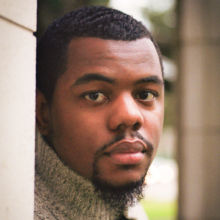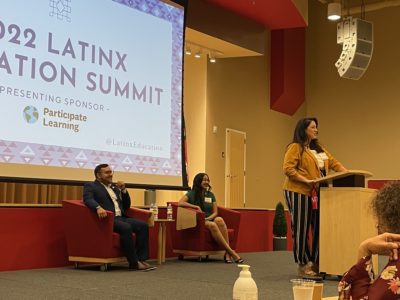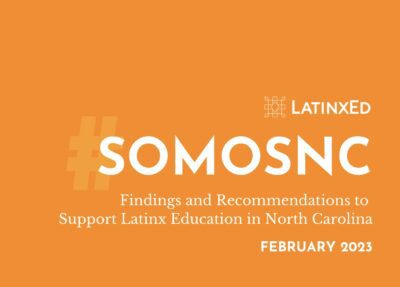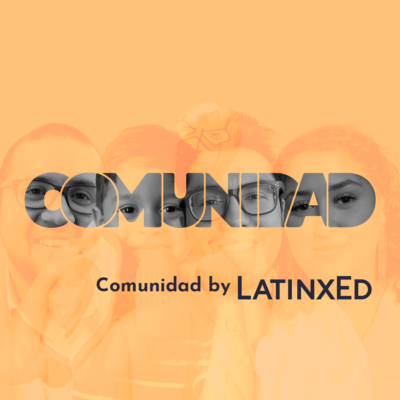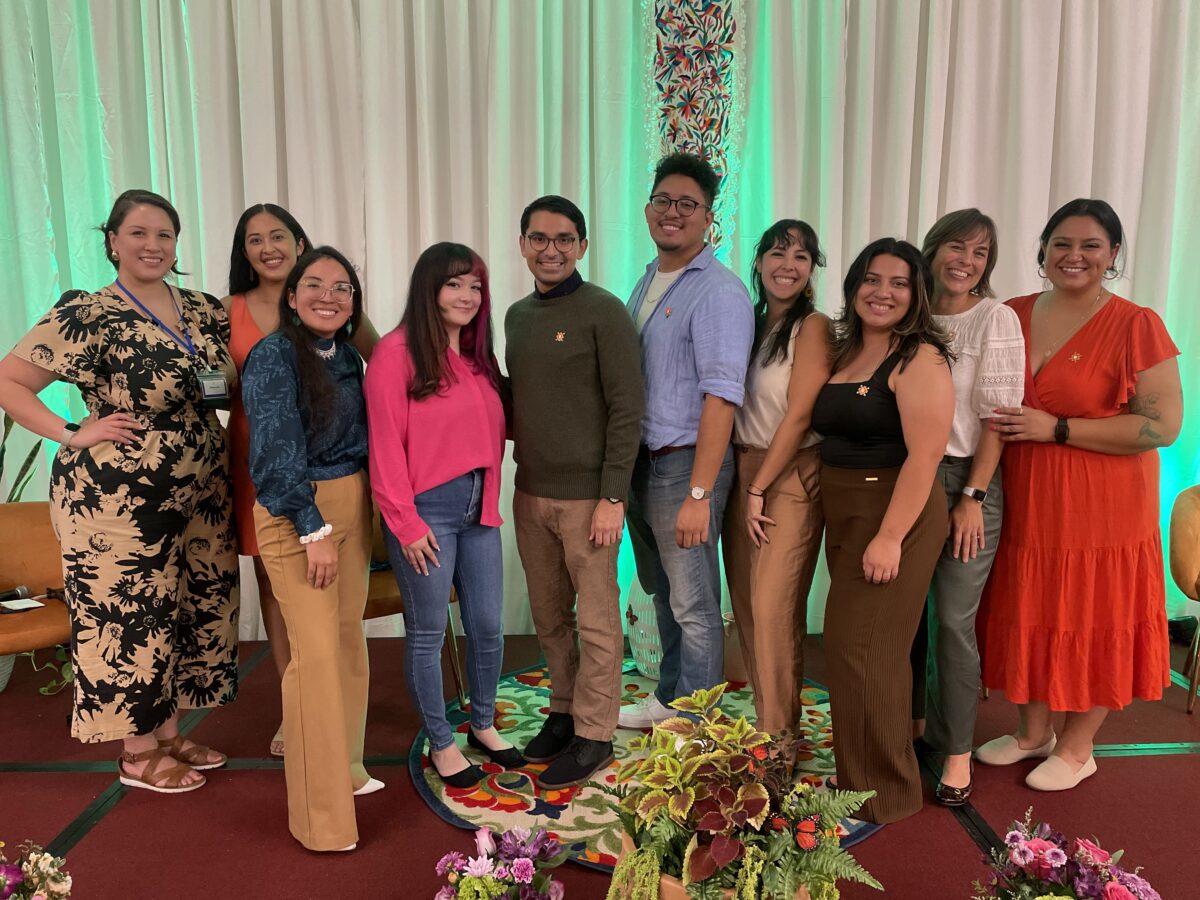

Share this story
- .@LatinxEducation recently hosted their 2023 Latinx Education Summit. Here is how they are supporting the growth of multigenerational Latinx leaders.
- At the 2023 Latinx Education Summit, @LatinxEducation Executive Director Elaine Townsend Utin reminded everyone that the way to move from fear and doubt to trust and love is through community.
|
|
LatinxEd, a nonprofit focused on investing in Latinx leadership to advance educational equity and opportunity in North Carolina, held its second in-person Latinx Education Summit Sept. 15 and 16 in Greensboro. A unique feature of this year’s summit was the decor: specially selected floral arrangements, various cultural displays such as cloths and flags, and paintings by self-taught artist Karina Morales Juarez of Burlington.
Notably, small “mariposas monarca,” or monarch butterflies, were spread across tables as keepsakes and were later revealed as a symbol for the convening.


Lorena Meza Lara is the program manager for CityGate Dream Center in Alamance County. With added inspiration from LatinxEd’s Carol Bono and Maria Pulido Ramirez, Meza Lara was also trusted as the curator for the event’s interior design. When speaking about the significance of the monarcas, she stated, “Butterflies are not just beautiful. They’re small, they’re delicate, but it’s amazing how they can spread goodness in the world.”
Importantly, Meza Lara also recognized the butterflies’ connectedness, explaining how, once a year, all monarcas fly together and gather in Michoacán, Mexico. Thus, she sees the butterflies as a representation of the collective strength and power among attendees, saying, “Sometimes we’re spread, but we come together because we’re stronger together.”


Over two days, LatinxEd created a space of familia and affirmation, simultaneously equipping the community with tools to assign action to their dreams. Here is how LatinxEd is supporting the flight of multigenerational Latinx leaders.
About LatinxEd
According to their website, LatinxEd provides “multi-year support to Latinx students and immigrant families striving for higher education and greater opportunity.” As children of immigrants raised in small, rural North Carolina towns and as first-generation college students, Elaine Townsend Utin and Ricky Hurtado co-founded the organization to address the barriers for others who shared those aspects of their journey. October will mark five years since LatinxEd initiated their efforts to amplify voices and create opportunities for Latinx students and families.
In partnership with UndocuCarolina, “College y Consejos” is one of LatinxEd’s initiatives through which they support postsecondary attainment for Latinx students. Another example of their work is their LatinxEd Fellowship, a “statewide network providing leadership development to Latinx leaders seeking to advance education equity in North Carolina.”
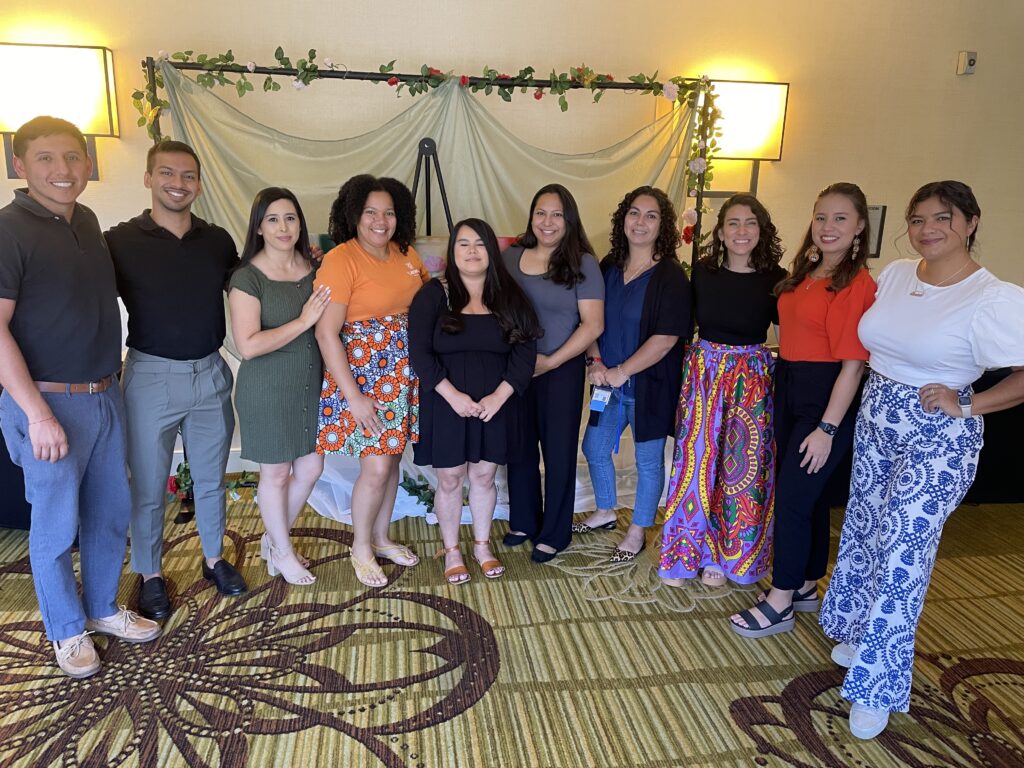

Jaime Ceballos, a 2023 LatinxEd Fellow, expresses gratitude for the fellowship, saying that the professional connections have allowed him to expand his leadership and better assist his community.
Ceballos grew up in Roxboro and recalls and honors his high school college advisor, Sonam Aidasani, for being the first educator to address him by the Spanish pronunciation of his name. A 2022 UNC Greensboro graduate, Ceballos now works with College Advising Corps via Duke University — the same program that introduced him to Aidasani. Furthermore, working at his high school alma mater now provides him comfort knowing he can be the representation and resource for the next generation.
Ceballos and his father started a Latinx scholarship for a graduating senior in their county. Through his father’s company, J.C. Lawn Care and Landscaping, the father-son duo administers “Ceballos Growth Scholarships.” In light of their own experiences in education, multiple generations of the Ceballos family are now working to support future Latinx leaders, a sentiment Ceballos feels is nurtured within the fellowship community.
Latinx Education Summit
In addition to other programming and events, LatinxEd hosts the Latinx Education Summit annually. The summit presents an opportunity to gather Latinx leaders and allies in education from across the state. Together, participants are exposed to the organization’s analysis of the state of Latinx education, followed by developing strategies and discussing collective action for approaching the obstacles faced by the community.
Last year’s summit address offered a glimpse at data and outcomes from LatinxEd’s #SomosNC report, which is the result of a listening tour that captured feedback from hundreds of students, parents, community leaders, and educational stakeholders.
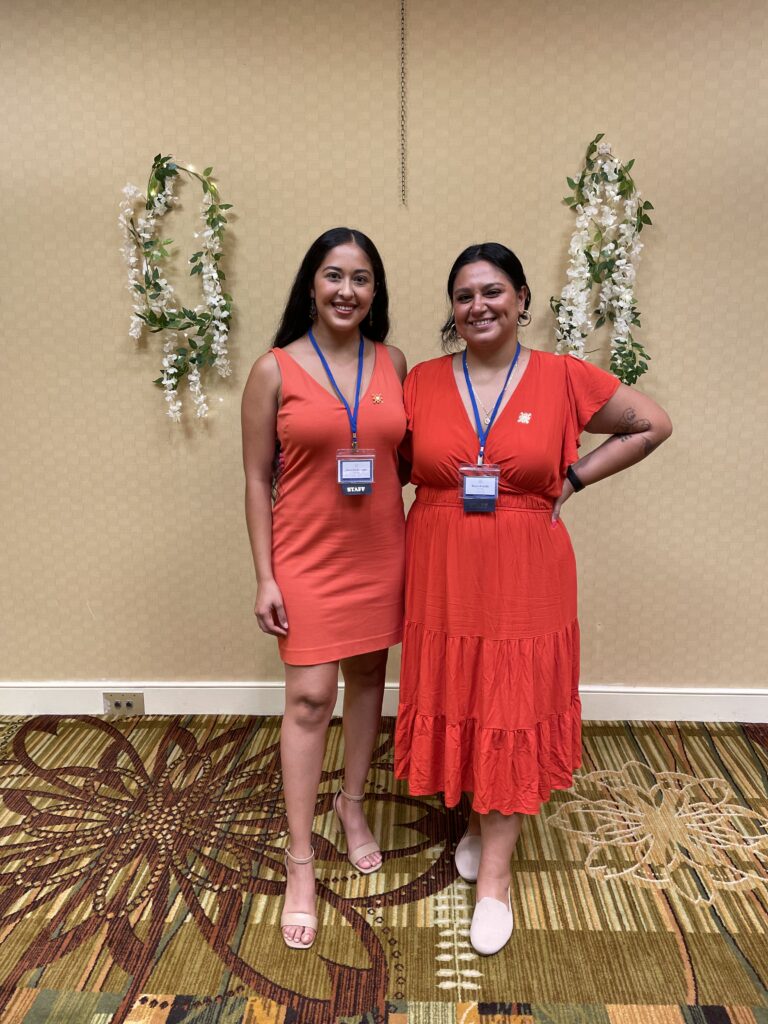

This year, the event kicked off in sync with the first day of Hispanic Heritage Month, a month that spans the anniversary of several Latin American independence days. In alignment, Gov. Roy Cooper proclaimed Sept. 15 to Oct. 15 as Hispanic Heritage Month with the 2023 theme dedicated to “Latinos: Driving Prosperity, Power, and Progress in America.”
To begin this year’s summit, several 2023 LatinxEd Fellows crafted and powerfully delivered their “Yo Soy,” or “I Am,” poems to the audience. Among them was Josue Jimenez Escribano, an 11th grade student at Heritage High School in Wake County. Escribano used the phrase, “ni aquí ni allá,” meaning from neither here nor there, in his poem as “something I could always feel, but I could never articulate.”
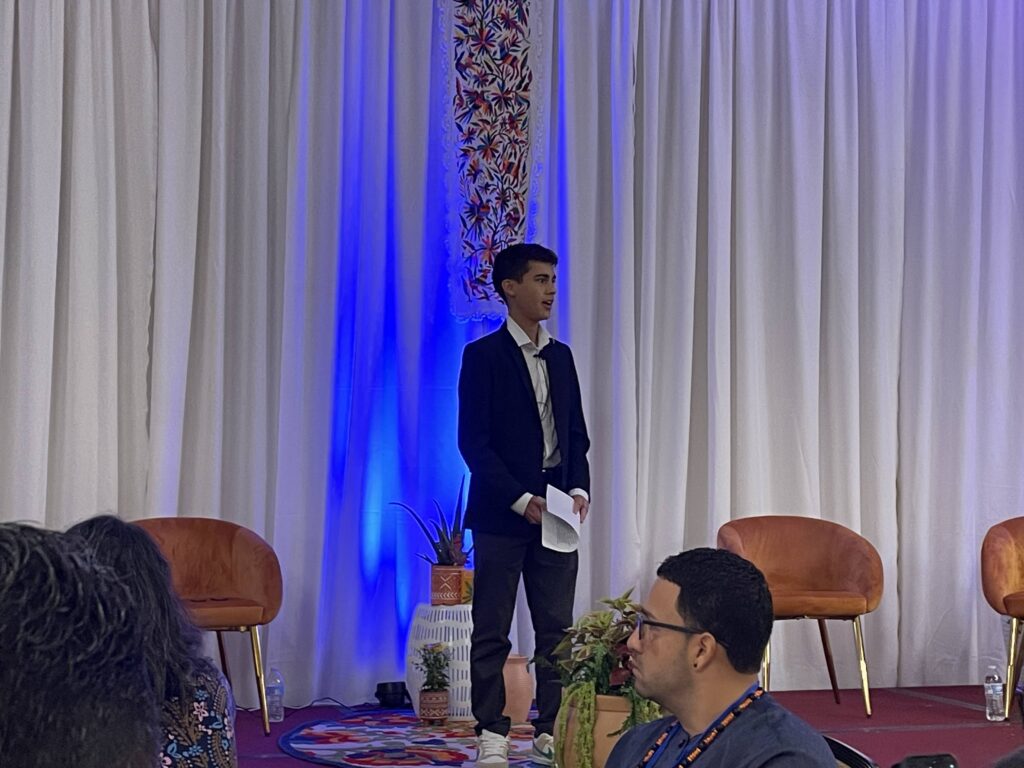

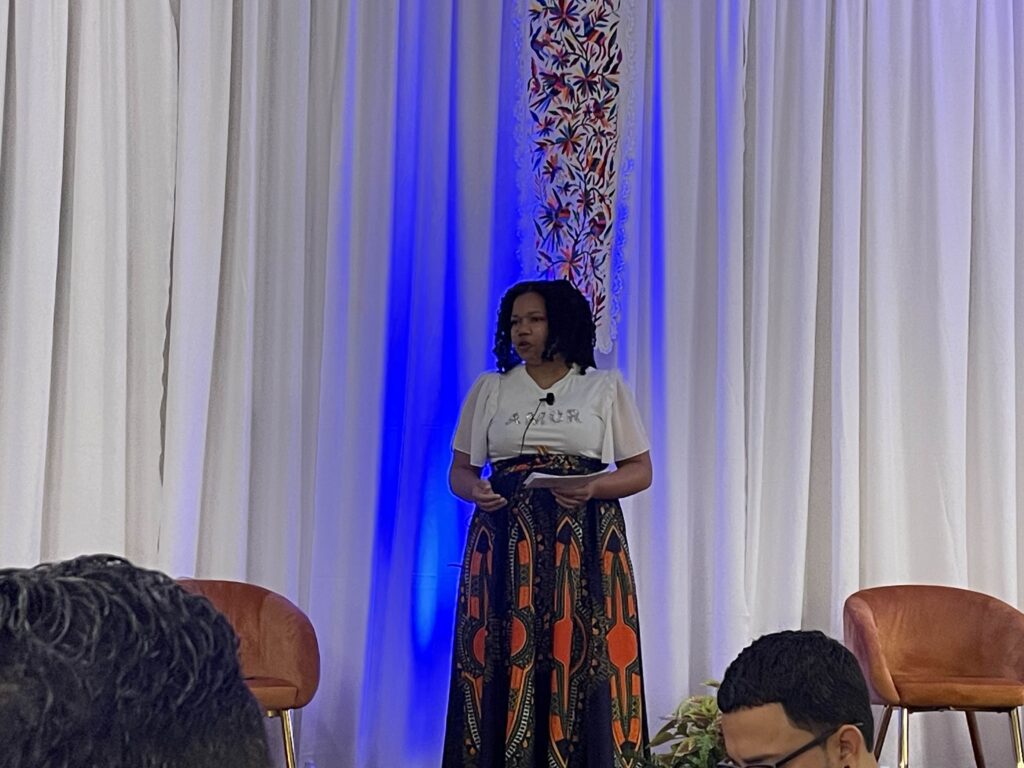

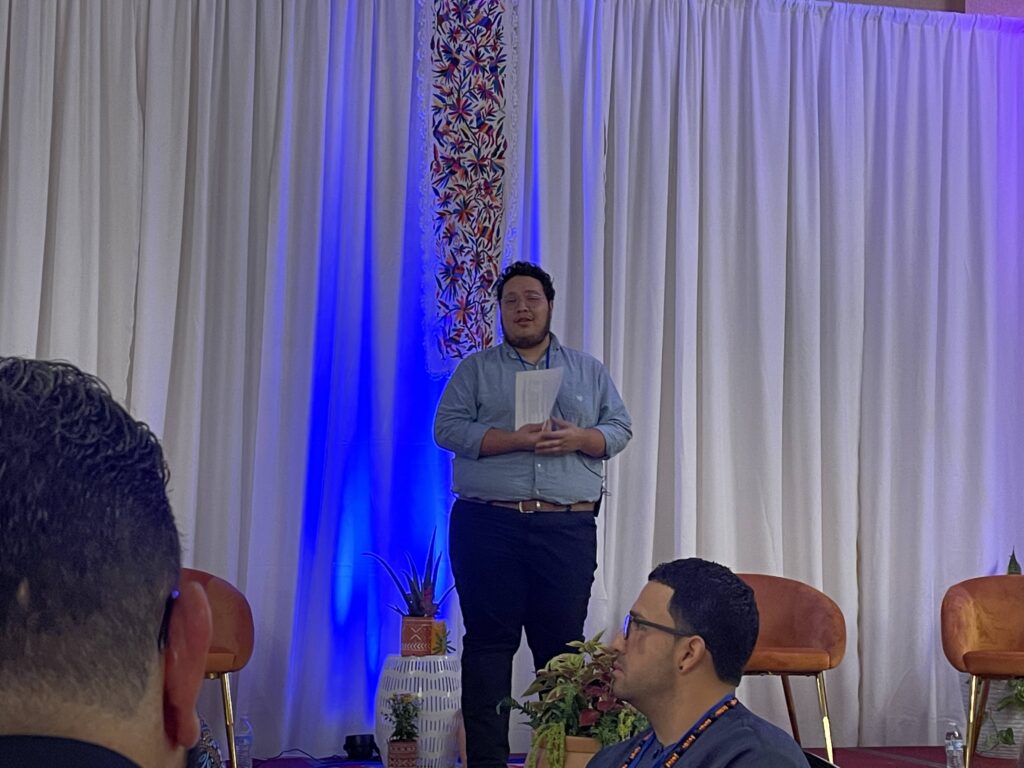

The statement magnifies the tension of what is considered home, especially for descendants of immigrants who work to embrace their cultural roots while also navigating resistance from others who feel like they don’t belong.
Ultimately, Jimenez Escribano stated, “Soy de aquí y de allá,” or I am from here and from there, establishing that “all these different parts I’m 100%, rather than my identity having to be split up.”
In a final declaration, he stated, “Yo soy Josue Jimenez Escribano, a second generation immigrant from Wake Forest who fights so one day everyone can proudly and boldly say, ‘Yo soy!’”
Diana Escribano (Josue’s mom) acknowledged that the new generation is facing a completely different set of “giants” than generations before. Having moved over 25 years ago, she initially assumed that there wouldn’t be much of an identity issue for her children given Puerto Rico’s similarities to the U.S. mainland. Yet, she and her husband recognize the value of taking her children home to Puerto Rico and nurturing their sense of belonging. She also expressed gratitude for spaces like the summit, where they get to witness and be surrounded by the power of Latinx culture and community here in N.C., which is also home.
In all, the conversation between the mother and son was representative of a greater theme threaded throughout the summit: multigenerational leadership.
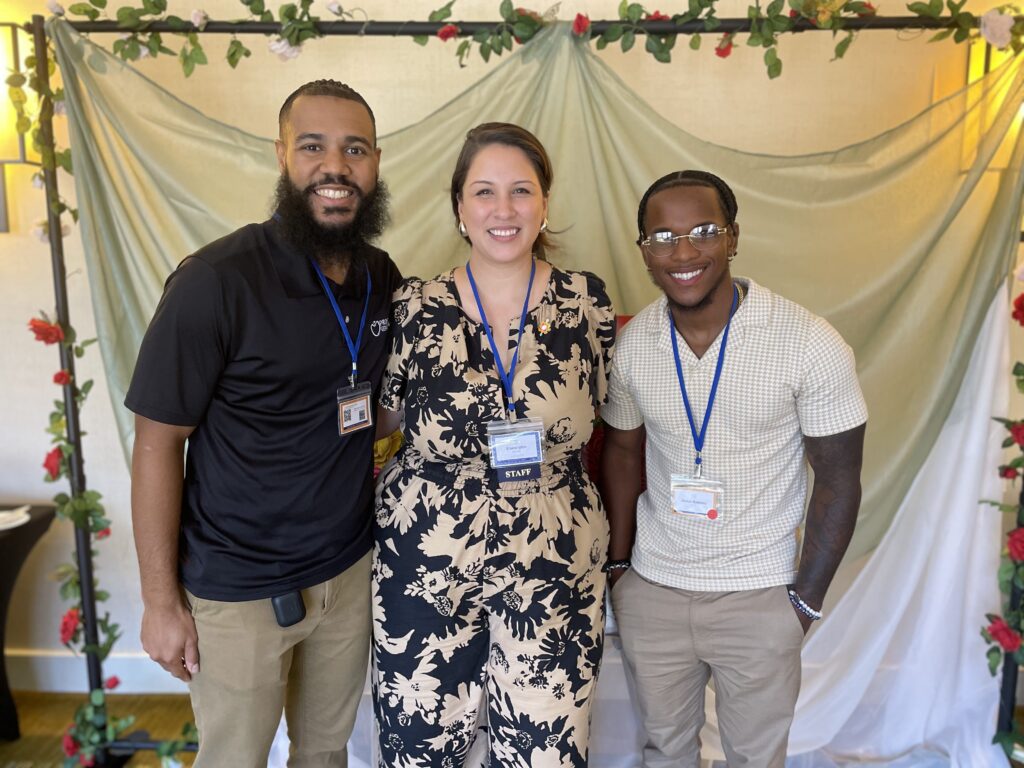

Leadership across generations
“Tú eres mi otro yo” translates to “you are my other me.” Repeated several times throughout the summit, the statement encapsulates the interconnectedness and responsibility that community members have for one another.
A panel discussion titled “Tú eres mi otro yo” highlighted the necessity of leadership across generations. Among the panelists was Angel Garcia, assistant director of Centro Hispano and program director of MI CASA at UNC Wilmington. Using multigenerational and intergenerational leadership interchangeably, he defined the terms by the act of recognizing and maximizing the strengths within the collective made up of all generations.
As mentioned by Diana Esribano, this may consist of older generations becoming informed about the new and different “giants” children face today.
On the other hand, Emily Escobedo Ramirez, a student at Appalachian State University, communicated the need for youth to partner with people who have experience in order to gain perspective and knowledge.
“It really does influence a lot,” she said. “It gives us those steps and information that are crucial to advocating not just for ourselves, but for the younger generation.”
“Of course there has to be dialogue and conversation from both sides to be able to have that relationship, that communion to where everything flows in unison. You have the wisdom, but you also have that spark. You also have that youth, that fire that’s going to get the job done.”
Josue Romero, administrative assistant with Profound Gentlemen
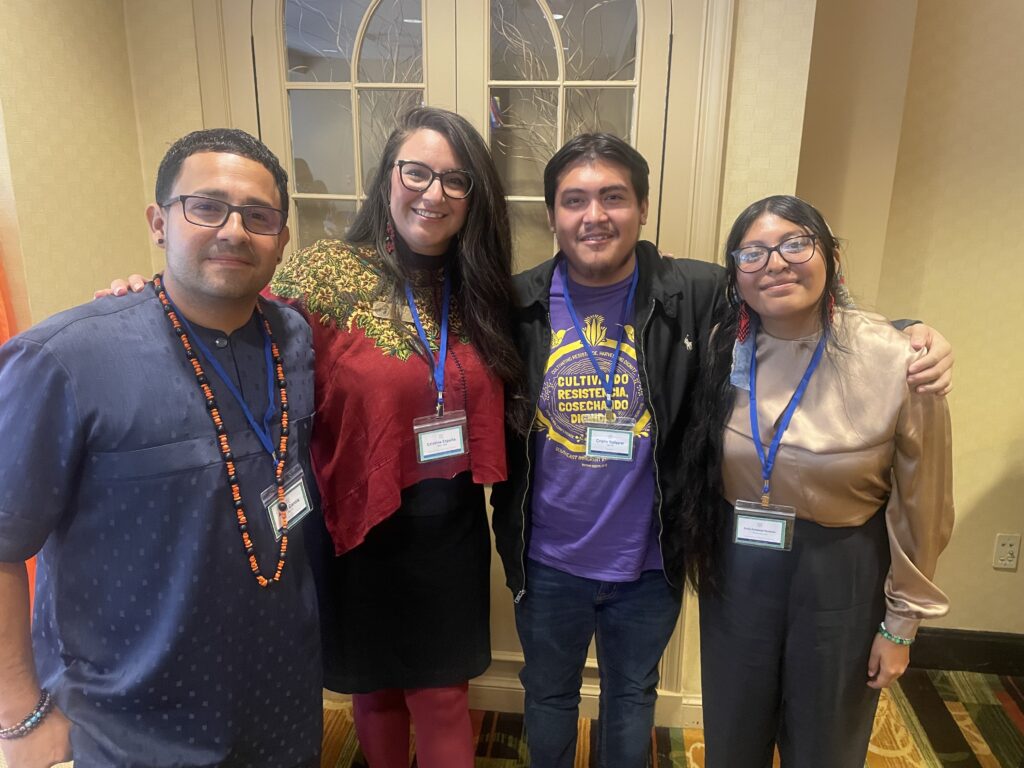

Iza Herrera is the co-founder and director of community advancement for Casa Azul de Wilson. For Herrera, the phrase “Tú eres mi otro yo” signifies asset-based thinking, anchoring in the shared experiences that bring people together.
“Once we realize that we share more than what we have in differences, I think that’s when we will be able to work together to actually create change and bring our power into reality,” she said.
Casa Azul is a nonprofit organization that focuses on four core areas: educational equity, language justice, culture, and civic engagement in Wilson. Herrera shared that a strength of hers is the ability to manage intergenerational relationships — “being able to connect with the parents and simultaneously connect with the student.”
She mentioned that a part of addressing generational barriers is reimagining what it means to be professional and a leader. For example, Herrera said she chooses not to wear a suit every day because she feels that “if we can’t be approachable … and they don’t feel safe coming to us, then at the end of the day, we’re not going to be able to serve them because they’re never going to trust us.”
Herrera believes it is mandatory to take a multigenerational approach when working with students, viewing her work with youth as a “familial journey.” She said a weight that many of their students carry is the effort to validate the sacrifice parents made whenever they came to the United States.
“Whenever that student crosses the stage in high school, it’s not only for the student, it’s for the whole family,” she said.
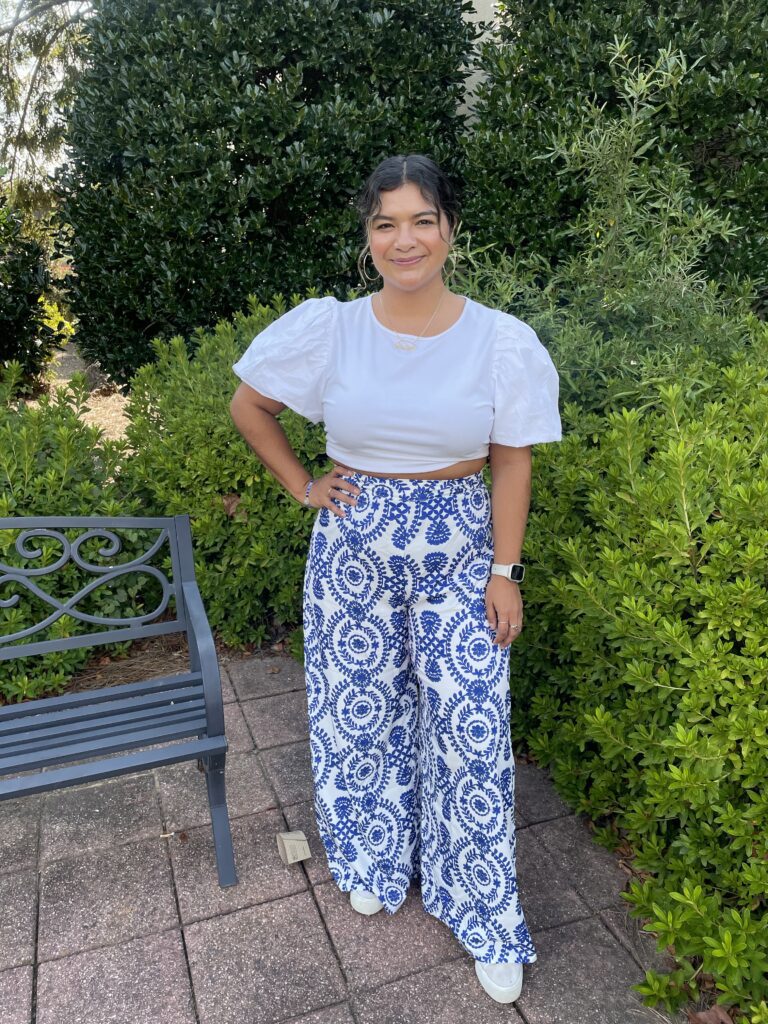

The power of representation
Another theme throughout the summit was the power of representation in spaces like the summit, created specifically to bring together a community of Latinx education leaders.
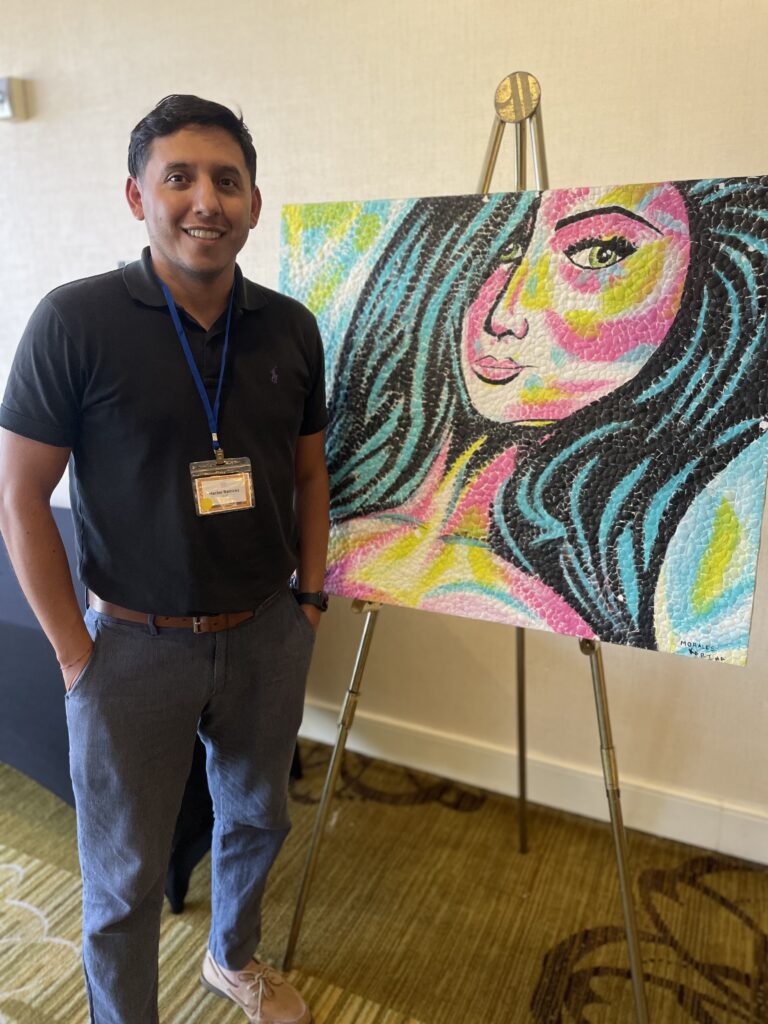

“I’ve never been a part of something like this, you know. I didn’t know these spaces existed,” said Hector Ramirez, a LatinxEd fellow and English as a second language (ESL) teacher.
Prior to networking with LatinxEd, Ramirez felt isolated without a community of Latinx leaders in education.
“I would have wanted somebody that looked like me to walk with me,” he said.
Overall, Ramirez stressed the need for Latinx mentorship in schools. Today he is not only thankful to witness his children see their identities represented among their teachers, but he left the summit with the growing awareness of the power and influence of his presence as an educator on children.
“I didn’t know I had that much power, you know,” he said. “Like I knew it, but I didn’t know until I heard it out loud.”
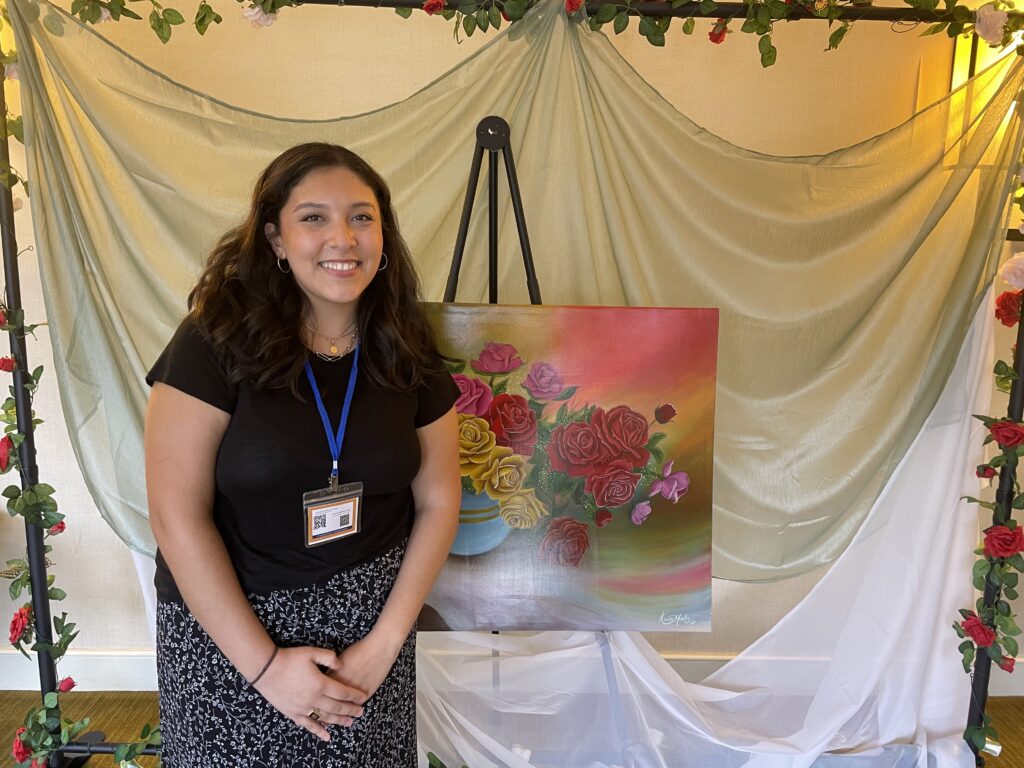

Natalie Trinidad Flores, a senior at North Carolina State University majoring in agricultural education with a concentration in horticulture science, said the summit was one of a few times where she has accessed a space of Latinx education leaders who are fighting for changes that she believes in.
“This experience has been one that I feel like has come really late, but it was necessary for me and my educational journey,” she said.
Trinidad Flores desires to be a career and technical educator upon graduation. While she has had mentors throughout her educational experience, not many have been Latinx. This is essential because she believes there is power in having people who understand her background and language.
As a direct message to the next generation of Latinx educators, particularly those forced to grow without Latinx mentors in education, Trinidad Flores said, “Don’t let that discouragement take you away from that space,” but rather, “let that be empowering in knowing that you are making a change.”
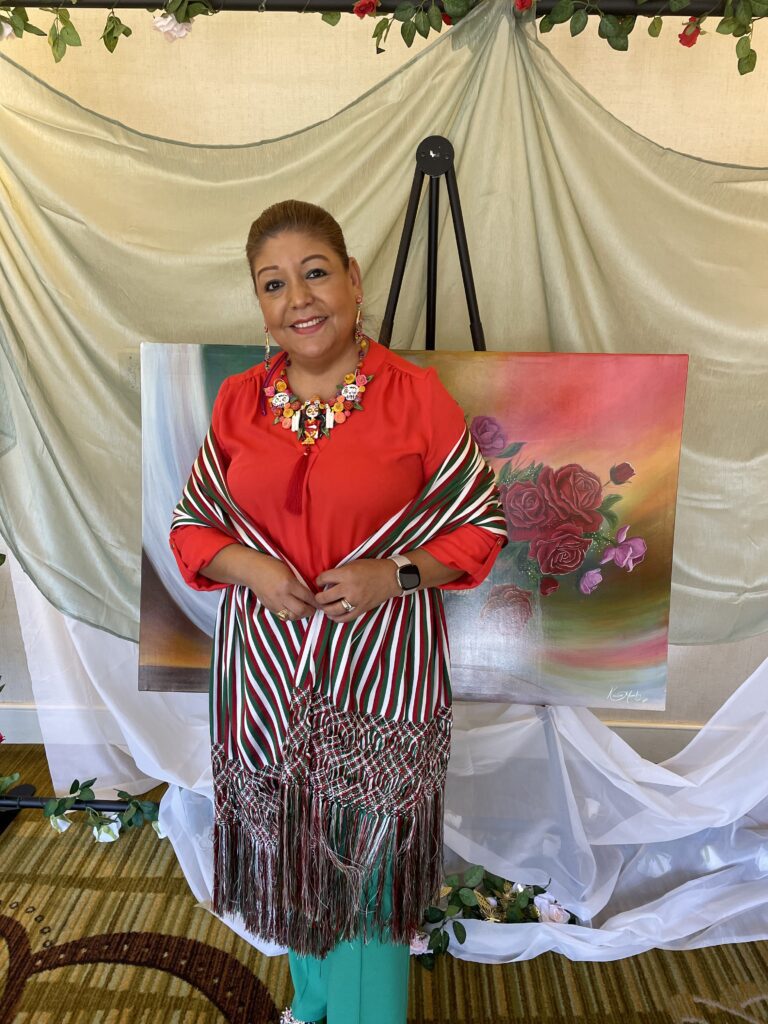

Dr. Maria Rosa Rangel, vice president of the North Carolina Society of Hispanic Professional, possesses over 30 years of various experiences as an educational leader that fuel her stance on demanding equitable education.
“We need to see parents having two-way conversations with the teachers in their language,” Dr. Rangel said. “We need to be able to see interpreting and translation services being provided across all schools. We need to be able to see more programs that highlight the culture of the students. We need to be able to see the kids in curriculum and their culture being reflected. We need to make sure that they understand their history, that they see themselves in the books and the curriculums in the classroom.”
Dr. Rangel praises the work that organizations like North Carolina Society of Hispanic Professionals and El Centro Hispano have been doing for decades. She wants to continue to see the maturation and collaboration with newer leaders to demand what is equitable for youth.
“I always tell people that I am sitting on giant shoulders, because I learned that alone, you cannot do the work,” she said. “Together, we could accomplish more.”
From dreams to action
What does a thriving Latinx leadership community look like in North Carolina in 2030?
This prompt was created in alignment with the state’s workforce and education attainment goal of having 2 million North Carolinians ages 25-44 will have a high-quality credential or postsecondary degree by 2023. Especially since the Hispanic population is the fastest growing population in North Carolina, it begs the question how the state is being intentional about increasing access to resources and opportunity for Latinx leaders.
An example of conversations at the summit that begin to address this goal was the panel discussion titled “Expanding workforce and education: Tuition fairness.” Kayla Morais, Chief Growth Officer at Our Turn, was among the panelists. Prior EdNC coverage highlighted Our Turn’s advocacy efforts in April 2023, when over 50 youth gathered to meet with legislators in support of Tuition Fairness bills introduced in the legislature.
Panelists collectively informed listeners of the history and challenges of merely developing language for the bill, such as selecting the word “fairness” over terms like “access” and being conscious of any connotative meanings that may harm the efforts.
Despite tuition fairness bills not passing this legislative session, panelists still count progress, specifically the bipartisan support that has been garnered for this particular matter. In all, it continues to serve as just one prime demonstration of the changes being advocated for to boost postsecondary attainment.
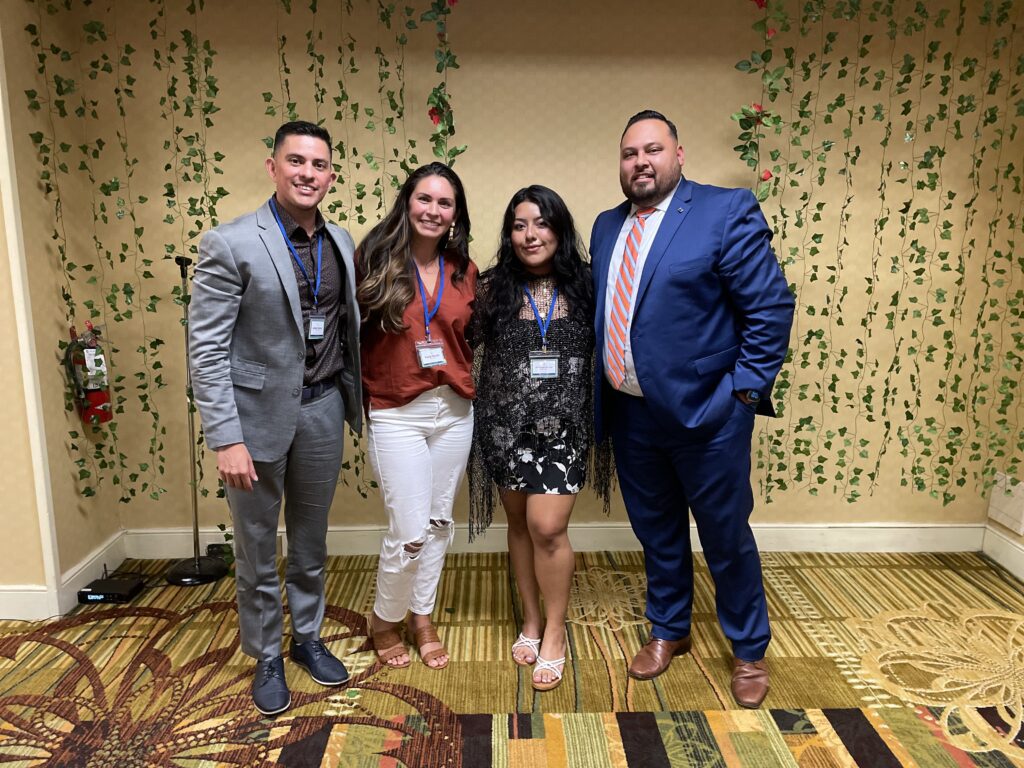

Discussions continued in smaller community “jardines,” or gardens, to strategize around the attainment question. Each jardín outlined the contributors, challenges, and conditions necessary to the cultivation of Latinx leadership and postsecondary success.
As framed by LatinxEd’s Director of Programs, Kiara Aranda, each individual is called to “demand the impossible,” otherwise stated as “demanding what may not have been imagined yet.”
As their motto expresses, the 300+ participants were continuously pushed to move “from dreams to action,” all contributing ideas for tangible nexts steps toward acquiring the set goals. Recognizing that their efforts are an ongoing journey with inevitable obstacles, LatinxEd Executive Director Elaine Townsend Utin reminded the monarcas that the way to move from fear and doubt to trust and love is through community.
Editor’s note: Elaine Townsend Utin is on EdNC’s Strategic Council, and Kayla Morais is on EdNC’s Board of Directors.
